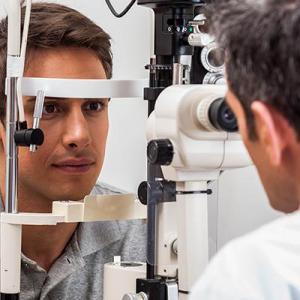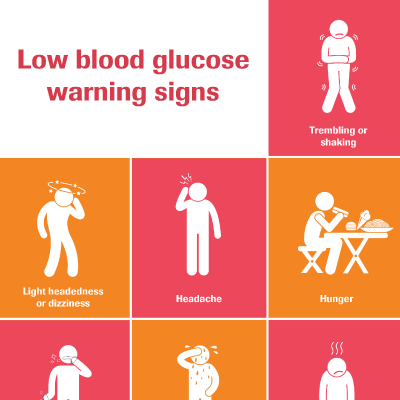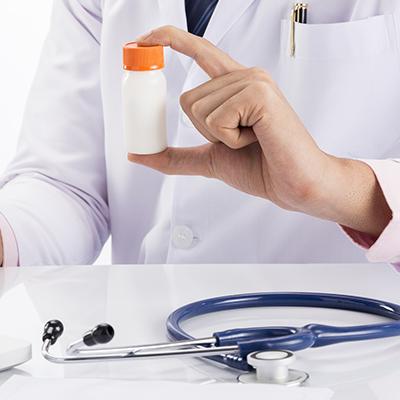Managing Diabetes Complications: Eye Disease
People with diabetes are at higher risk for several types of eye disease, including retinopathy, cataracts and glaucoma. Any of these diseases can lead to blindness over time. Early detection is the key to avoiding or lessening the risk of these diseases. Retinopathy, the most common eye disease in people with diabetes, is caused by damage to the blood vessels of the retina that helps us to see. In some cases, these vessels may swell and leak fluid. This is called nonproliferative, or backgroundretinopathy. As these areas heal, scarring occurs and abnormal new blood vessels may grow on the retina's...
Read MoreMatching all aspects of the ISO 15197:2013 performance requirements for blood glucose monitoring systems
Accu-Chek brand of blood glucose monitoring products are compliant with the revised standards of IS/ISO 15197:2013 announced by Central Drugs Standards Control Organisation (CDSCO), Directorate General of Health Services, Ministry of Health & Family Welfare. What is ISO? ISO is the International Organization for Standardization headquartered in Switzerland, whose membership is comprised of national standards bodies from approximately 162 countries. ISO is an independent non-governmental organization. What is an ISO standard? An ISO standard is...
Read MoreExercise more
Ways to Increase Activity Exercise is good for everyone, but for people with diabetes, it can make a big difference in keeping your blood sugar level under control. Not only that, but staying active allows your cells to process insulin more efficiently, improving your overall A1C levels. The many benefits to staying active Exercise is one of the cornerstones of managing your diabetes, because the list of benefits for people with diabetes is long. Exercise can:1 Improve insulin sensitivity for people with type 12 Decrease the glucose in your...
Read MoreBlood GlucoseTest Results Help You Take Control
Benefits of testing your blood sugar Testing your own blood sugar helps you take control of your health, especially once you learn what your test result numbers mean, and what to do with them. Recent research, the Structured Testing Protocol (STeP) study, offers the proof. The study concluded that collecting the data of blood sugar test results, visualizing and understanding this data, and focusing treatment based on that data significantly reduced the A1C levels of poorly controlled type 2 diabetes over a 12-month period1. Frequent testing gives you the data to make informed decisions...
Read MoreEating Healthy with Diabetes
You don’t have to sacrifice your target blood sugar levels to enjoy some of your favorite foods. Here’s how to eat healthy with #diabetes, whether you’re cooking at home, or eating in a restaurant. Carbohydrates and your blood sugar Carbohydrates are sugars. They break down in the body creating glucose, a main source of energy. Counting the carbs you eat at every meal and pairing them with the correct dosage of insulin can keep your blood sugar level closer to normal range.1 It also allows you to eat a wider variety of foods. In fact, your diet can accommodate any food in...
Read MoreCreating a Circle of Support
No one can go it alone. Whether you have diabetes or you’re a caregiver, it’s important to have a few options for emotional support. Knowing who to turn to with specific questions will make life easier. Find other people with diabetes Few things are more comforting than talking with someone who understands you when you have diabetes, or if you are facing a type 1 or type 2 diagnosis. If you don’t already have a friend or family member with diabetes who can fill this role, seek out a diabetes support group near you. What have you got to lose? If you don’t like one group, look for...
Read MoreTransitions: From Orals to Insulin
Insulin and type 2 diabetes: 5 facts you should know Has your healthcare provider talked to you about insulin? For many people, this can bring on mixed feelings and questions—often based on myths that simply are not true. Here are 5 facts to keep in mind. Diabetes is an insulin problem, not a sugar problem. After all, sugar doesn't cause diabetes. People with type 2 diabetes don't manufacture enough insulin, or their bodies can't use it properly, so they're unable to process the food they take in.1...
Read MoreHow to Talk to Your Doctor
How to Talk to Your Doctor Whether you’ve been living with diabetes for years or you’re newly diagnosed, communicating with your healthcare team is one of the best things you can do. If you’re nervous about opening up to your doctor or pharmacist, there are some good reasons to conquer these fears. Less communication leads to measurable increases in your stress, anxiety, and possible depression. It also leads, inevitably, to less frequent and less successful diabetes management.1 Since communicating with your healthcare providers is proven to be good for your health, here are some...
Read MorePages
Matching all aspects of the ISO 15197:2013 performance requirements for blood glucose monitoring systems
Accu-Chek brand of blood glucose monitoring products are compliant with the revised standards of IS/ISO 15197:2013 announced by Central Drugs Standards Control Organisation (CDSCO), Directorate General of Health Services, Ministry of Health & Family Welfare. What is ISO? ISO is the International Organization for Standardization headquartered in Switzerland, whose membership is comprised of national standards bodies from approximately 162 countries. ISO is an independent non-governmental organization. What is an ISO standard? An ISO standard is...
Read MoreExercise more
Ways to Increase Activity Exercise is good for everyone, but for people with diabetes, it can make a big difference in keeping your blood sugar level under control. Not only that, but staying active allows your cells to process insulin more efficiently, improving your overall A1C levels. The many benefits to staying active Exercise is one of the cornerstones of managing your diabetes, because the list of benefits for people with diabetes is long. Exercise can:1 Improve insulin sensitivity for people with type 12 Decrease the glucose in your...
Read MoreBlood GlucoseTest Results Help You Take Control
Benefits of testing your blood sugar Testing your own blood sugar helps you take control of your health, especially once you learn what your test result numbers mean, and what to do with them. Recent research, the Structured Testing Protocol (STeP) study, offers the proof. The study concluded that collecting the data of blood sugar test results, visualizing and understanding this data, and focusing treatment based on that data significantly reduced the A1C levels of poorly controlled type 2 diabetes over a 12-month period1. Frequent testing gives you the data to make informed decisions...
Read MoreEating Healthy with Diabetes
You don’t have to sacrifice your target blood sugar levels to enjoy some of your favorite foods. Here’s how to eat healthy with #diabetes, whether you’re cooking at home, or eating in a restaurant. Carbohydrates and your blood sugar Carbohydrates are sugars. They break down in the body creating glucose, a main source of energy. Counting the carbs you eat at every meal and pairing them with the correct dosage of insulin can keep your blood sugar level closer to normal range.1 It also allows you to eat a wider variety of foods. In fact, your diet can accommodate any food in...
Read MoreCreating a Circle of Support
No one can go it alone. Whether you have diabetes or you’re a caregiver, it’s important to have a few options for emotional support. Knowing who to turn to with specific questions will make life easier. Find other people with diabetes Few things are more comforting than talking with someone who understands you when you have diabetes, or if you are facing a type 1 or type 2 diagnosis. If you don’t already have a friend or family member with diabetes who can fill this role, seek out a diabetes support group near you. What have you got to lose? If you don’t like one group, look for...
Read MoreTransitions: From Orals to Insulin
Insulin and type 2 diabetes: 5 facts you should know Has your healthcare provider talked to you about insulin? For many people, this can bring on mixed feelings and questions—often based on myths that simply are not true. Here are 5 facts to keep in mind. Diabetes is an insulin problem, not a sugar problem. After all, sugar doesn't cause diabetes. People with type 2 diabetes don't manufacture enough insulin, or their bodies can't use it properly, so they're unable to process the food they take in.1...
Read MoreHow to Talk to Your Doctor
How to Talk to Your Doctor Whether you’ve been living with diabetes for years or you’re newly diagnosed, communicating with your healthcare team is one of the best things you can do. If you’re nervous about opening up to your doctor or pharmacist, there are some good reasons to conquer these fears. Less communication leads to measurable increases in your stress, anxiety, and possible depression. It also leads, inevitably, to less frequent and less successful diabetes management.1 Since communicating with your healthcare providers is proven to be good for your health, here are some...
Read More








